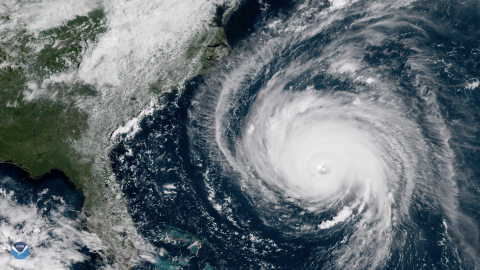When discussing climate change, U.S. Representative Buddy Carter is fond of reminding his colleagues and his constituents that his district encompasses the entire coast of Georgia, as if this fact imbues him with an especially acute understanding of the issue.
If only it were true. But alas, Mr. Carter consistently opposes legislative measures to curb the greenhouse gas emissions causing the climate to overheat.
Just last week, he appeared before the House Rules Committee (link to video) to oppose the reversal of the Trump administration’s rollback of an Obama-era rule that requires oil and gas companies to use the best available methods to control methane leaks.
Methane is a powerful greenhouse gas. While not as long-lasting or as abundant in the atmosphere as carbon dioxide, it is 84 times more potent in the short term. Anyone with a rudimentary understanding of climate change would recognize the importance of employing every means at our disposal to cut methane emissions and quickly approve this measure.
All we get from Carter is confounding doublespeak about his concern for how climate change affects the Georgia coast and how doing anything about it hurts the economy.
Carter’s sophistry confused some of the committee members at first, but his insidious brand of climate denialism became more apparent the more he spoke.
...continue reading "Congressman Buddy Carter’s Climate Denialism on Full Display"

